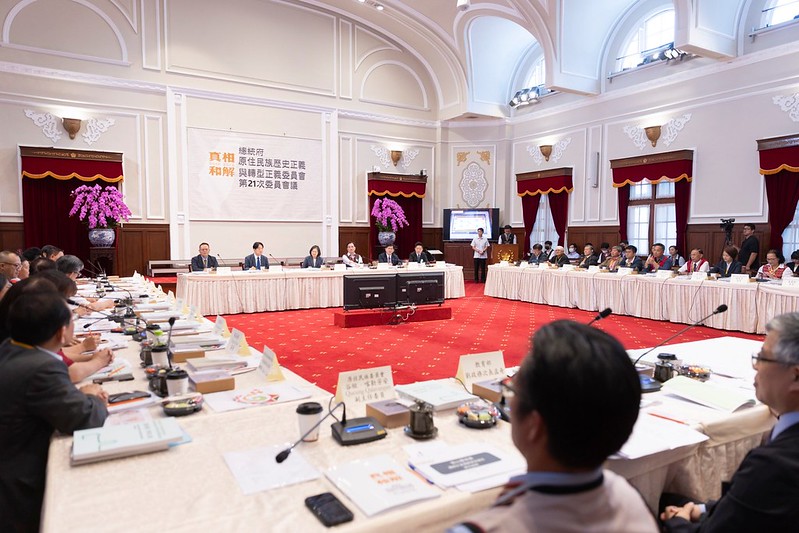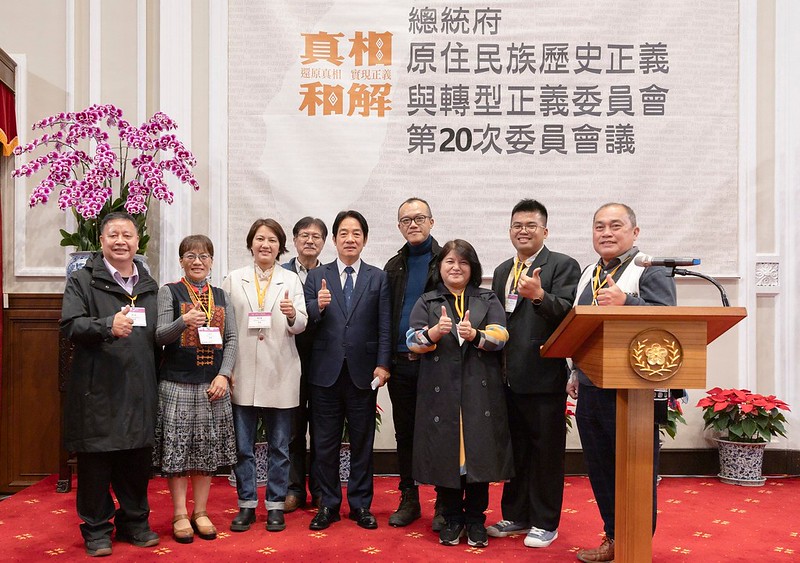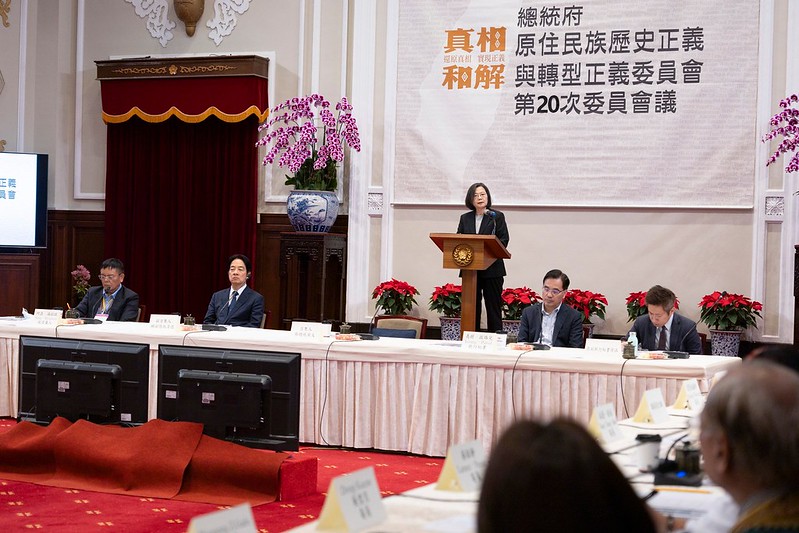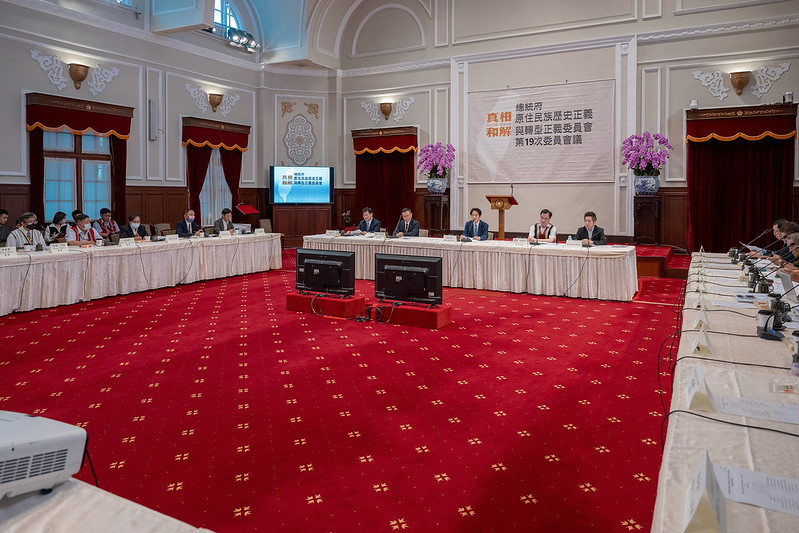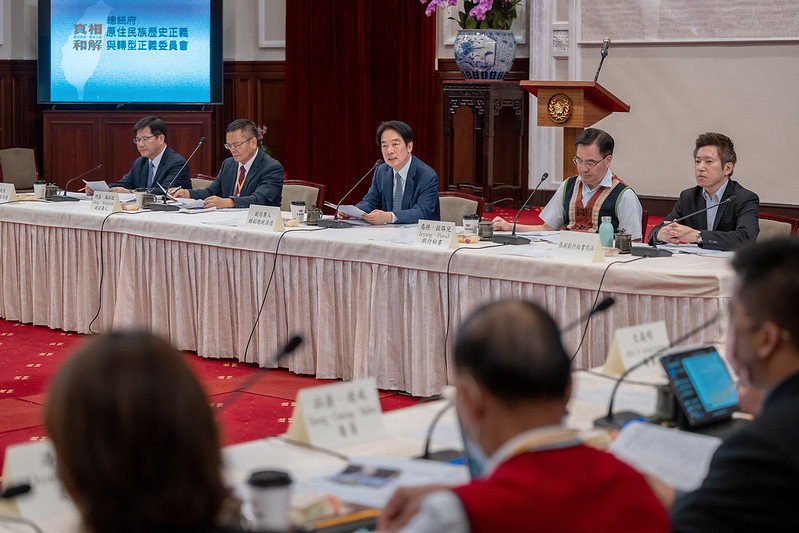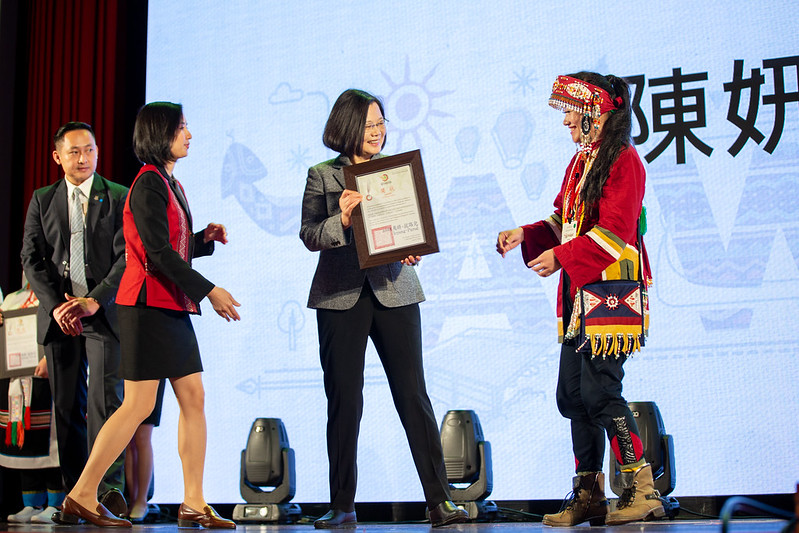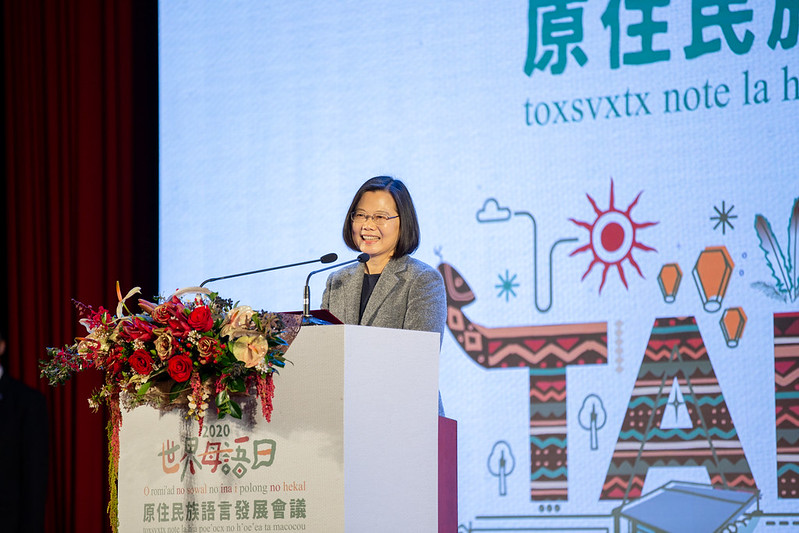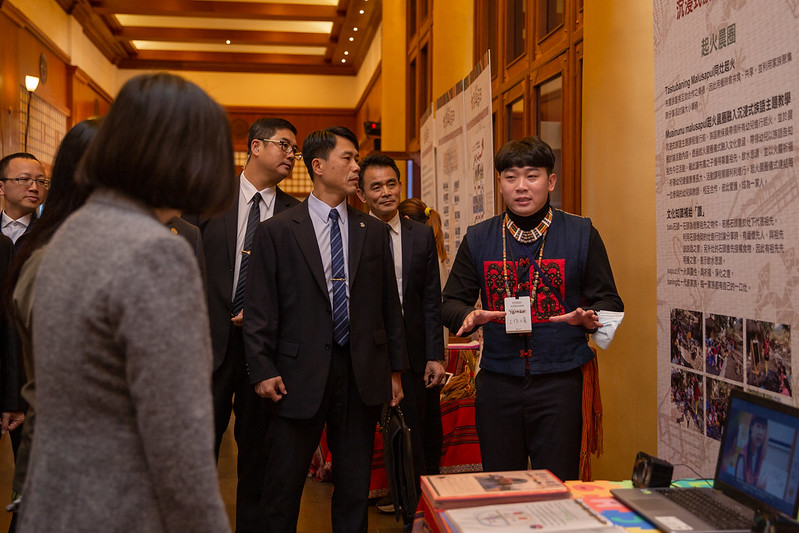News & activities
 News releases
News releases
On the afternoon of February 22, President Tsai Ing-wen delivered remarks at the 2020 International Mother Language Day: the Indigenous Languages Development Conference. She said that since we passed the Indigenous Languages Development Act in 2017, all indigenous languages have been designated as "national languages," and the budget devoted to those languages is now five times larger, a significant increase. Last year we passed the National Languages Development Act, and the government will devote even more effort to ensuring that the mother languages of all ethnic groups can be passed on to future generations, revitalized, and developed. We will use languages to connect with the world, which can give Taiwan more room to develop.
Upon her arrival, President Tsai toured the display booths at the event and then delivered remarks. A translation of those remarks follows:
Yesterday was International Mother Language Day. Taiwan has not only responded to this global day, but has also adopted concrete measures to ensure that mother languages are given room to develop.
Over the past three years, the government and private sector have been working together every single day to promote the transmission of mother tongues to future generations.
The languages of Taiwan's indigenous tribes are some of our most unique mother tongues, and a source of pride. After we passed the Indigenous Languages Development Act in 2017, all indigenous languages have been designated as "national languages," and the budget devoted to those languages is now five times larger, a significant increase.
For the past few years, our schools have had full-time indigenous language teachers. In tribal communities, these languages are being taught using indigenous language promoters and a mentoring system. Even in government agencies, we have made our first attempts to use indigenous languages in official government documents and simultaneous interpretation.
We have indigenous peoples from all over the country here today who are studying and promoting indigenous languages together. I want to thank all of you, because your persistence and hard work will make our efforts to pass on indigenous languages even more successful in the future.
And our efforts will extend beyond the languages of indigenous peoples. Last year we passed the National Languages Development Act, and the government will devote even more effort to ensuring that the mother languages of all ethnic groups can be passed on to future generations, revitalized, and developed.
We have established a national Hakka radio station and a Taiwanese-language channel under our Public Television Service. The new 12-Year Basic Education curriculum also has added flexibility to allow for the study of mother tongues.
Although the mother languages of recent immigrants are not "national languages," they are gradually being introduced into school curriculums, and the Ministry of Education is actively training qualified teachers.
I believe that in addition to learning mother languages at home, students should also be able to learn them in school. Even more important, it is the government's responsibility to create a diverse and positive environment so that Taiwan's young generation will be willing to learn and speak their mother tongue without inhibitions.
In the past, people who spoke their mother tongue could be punished. But today, the government encourages people to speak their mother tongue, and use those languages to let the world see another side of Taiwan. This reflects democratic values, achieved through the efforts of many people. We will cherish our mother tongues even more, and continue to promote their importance.
The theme for this year's International Mother Language Day is "Languages Without Borders." And I believe that acknowledging the importance of mother languages can not only help us appreciate diverse cultures, but also help us use languages to connect with the world. Links to New Southbound Policy countries, Austronesian ethnic groups, and ethnic Chinese around the world can give Taiwan more room to develop. So let's continue our efforts, and continue to enjoy the beauty of learning and speaking our mother tongues.
In closing, I would like to congratulate the Foundation for the Research and Development of Indigenous Languages on its formal establishment, and hope that the next two days of meetings will be a great success.
Among those in attendance at the event were Minister without Portfolio Lin Wan-i (林萬億), Minister of the Council of Indigenous Peoples Icyang Parod (夷將‧拔路兒), Administrative Deputy Minister of Education Lin Teng-Chiao (林騰蛟), Deputy Minister of Culture Peng Chun-heng (彭俊亨), Taitung County Magistrate Yao Ching-ling (饒慶鈴), Legislator Chen Ying (陳瑩), and members of the diplomatic corps.
